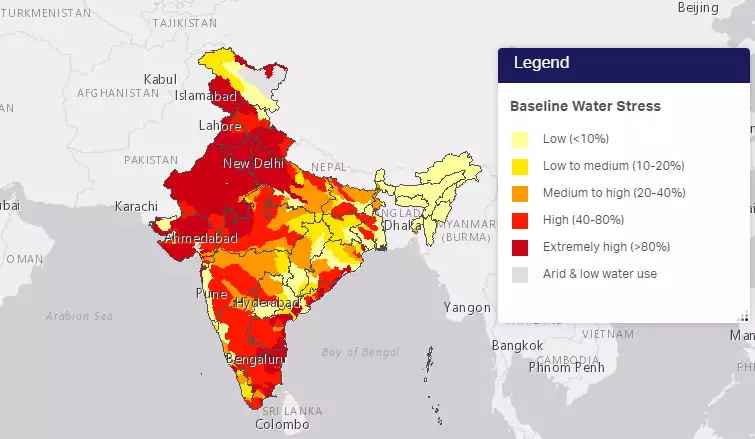International Relations
Australia India Water Security Initiative (AIWASI)
- 09 Jun 2022
- 4 min read
For Prelims- AIWASI
For Mains- India-Australia Relations, State of water in India
Why in News?
The Union Cabinet has approved a MoU (Memorandum of Understanding) between India and Australia on Technical Cooperation for Australia –India water Security initiative (AIWASI).
What is AIWASI?
- AIWASI is a project Under South Asia Water Security Initiative (SAWASI) of Department of Foreign Affairs and Trade (DFAT), Australia.
- It aims to work towards the Water Sensitive City vision which is based on holistic management of the integrated water cycle.
- AIWASI will strengthen India’s water governance and undertake investments that provide.
- urban water services,
- support to disadvantaged communities to access reliable, safe water and sanitation services.
- The project will undertake and deliver a Water Sensitive Urban Design (WSUD) demonstration project.
- This AIWASI project is also a ‘living laboratory’ with multiple educational, social and environmental benefits like water literacy of students and the community, creation of green spaces, improved air quality from blue-green infrastructure and rejuvenation of degraded water bodies and aquifers.
What is water security?
- The definition of water security proposed by UN-Water – The capacity of a population to safeguard sustainable access to adequate quantities of acceptable quality water for sustaining livelihoods, human well-being, and socio-economic development, for ensuring protection against water-borne pollution and water-related disasters, and for preserving ecosystems in a climate of peace and political stability.
What are the challenges related to water security in India?
As per the Sustainable Development Goal report (2019)
- 1 in 4 health care facilities lacks basic water services
- 3 in 10 people lack access to safely managed drinking water services.
- 6 in 10 people lack access to safely managed sanitation facilities.
- At least 892 million people continue to practice open defecation.
- Mostly, Women and girls are responsible for water collection in 80%of households without access to water on the premises.
- And if current trends of over-exploitation continue, India is set to become a water-scarce country in the not-too-distant future.
- A rapidly increasing population and urbanization have driven up water demands all across the country.
- While years of pollution, inefficient methods of farming, decentralized water governance, groundwater exploitation and poor infrastructure have depleted the water supply.
- The map shown below illustrates the Baseline water stress condition in India and it can be easily visualized that most part of the country is under the over-exploited category.
- Baseline water stress measures total annual water withdrawals (municipal, industrial, and agricultural) expressed as a percent of the total annual available flow.
What are the Related Initiatives?
What could be the way forward?
- The MoU signed with Australia would help in learning the best practices to save water and use it in a sustainable manner, so that water security could be achieved.
- Need to enhance our own capabilities by building new infrastructure and creating awareness among masses to conserve water.
- Need timely execution of government schemes and roadmaps.
- More collaboration needed with countries which had already faced water scarcity in the past and how they overcome it.





